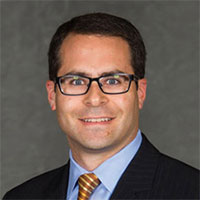
Citizen demand for climate policy is so soft in the U.S. that new tactics are needed to address global warming.
David Konisky ’06, MIT-SHASS Political Science
Americans respond best to local, rather than global, climate impacts
Interestingly, when it comes to the question of harm, researchers found people are significantly more moved by local health effects and environmental damage than they are by global impacts, Konisky said.
“People are concerned about local water pollution, local air pollution. There’s not a lot of latent demand to address global climate change directly,” he said.
These attitudes have a direct impact on policy. Konisky said Americans were found to prefer regulations that cap emissions or set standards for the use of renewable energy over policies that are more efficient at cutting greenhouse gas emissions — for example, cap and trade (regulation using tradeable allowances) or carbon taxes (usage or production taxes).
“Why is this? We think it’s related to how people think about energy,” Konisky said. “We think the evidence suggests people prefer regulation because they believe it goes after the things they value, particularly local environmental impacts. They do not make the same connection for other policies. They see these as ‘climate’ policies, and they are less supportive of ‘climate policies’ than they are of ‘environmental policies.’”
Konisky notes that because citizen demand for ‘climate policy’ is so soft in this country, new tactics are needed to address global warming.
How the U.S. can advance energy and environmental policy
In their book, Konisky and Ansolabehere recommend policies that target both local pollutants and carbon emissions (the main source of global warming). The local and immediate nature of people’s energy concerns, they say, can be the starting point for a new approach to energy and climate change policy.
“You can think about addressing climate change without talking about ‘climate change.’ You can talk about ‘going after emissions’ in a variety of ways. You could go after ‘local environmental harms.’”
The bottom line, according to Konisky, is that the terms “climate change” and “global warming” — terms that refer to the issue in a vast, global sense — seem so abstracted from people’s local reality, and are so polarizing, that it can be counterproductive to talk about the issues using those terms.
“The U.S. can help the world move toward a cleaner energy economy,” Konisky said in an earlier talk at Indiana University, “but the strategy should focus on the local impacts from energy use instead of seeing it as a global-size issue.”
Suggested Links
David Koniksy
Konisky, MIT PhD ’06, is an associate professor at the School of Public and Environmental Affairs, Indiana University Bloomington. Konisky’s research focuses on American politics and public policy, with particular emphasis on regulation, environmental politics and policy, state politics, and public opinion.
Stephen Ansolabehere
Professor of Government, Harvard University
Clean and Cheap (MIT Press, 2015)
MIT-SHASS Department of Political Science
2015 is the 50th Anniversary of the Department of Political Science at MIT
MIT-SHASS Research | Environment
SHASS research that informs climate, energy, water and food issues